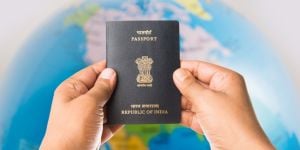
If you are planning to move to India with children, you must be wondering about the childcare options available in India. Most families in India live in a close knit environment and are available to help out with childcare, with kids being taken care of by the family members staying at home, such as grandparents, aunts, etc.. Over the past few years, the concepts of babysitters, nannies, play schools, and childcare centres are gaining ground, especially in the main cities.
The primary education system in India
Although the education system in India is being outpaced by the growing educational needs of the children, there are some highly specialised private schools and nurseries that offer world-class services. In most of the major cities, you will find playschools for children between the age of 18 months to three years. Here, children are taught to develop and foster social, aesthetic and motor skills.
For kids up to the age of four, there are nurseries, after which you can opt to put your children in kindergarten. The minimum age limit for admission in kindergarten is four years, and the basic learning skills include reading, writing and simple maths ' all taught in a fun way.
The pre-primary school is mainly divided into two categories ' lower classes (which welcome four and five-year-old children) and higher pre-primary classes (which are more adapted to the needs of those older than five). Montessori schools are the most popular ones in India. Children attending schools in India are required to wear a uniform, including matching socks and shoes.
Good to know:
Unlike many other countries, India does not have a system of public-funding for nursery or pre-primary education. However, the government provides free education for children between six and 14 years old.
Enrollment in nurseries, kindergartens and schools
Finding the right type of nursery and kindergarten will not be difficult. In most of the major cities, there are many new as well as established pre-schools, including several private international schools and other childcare centres providing quality education.
Enquire about the different types of schools, their programs, locations and fees structure before making your final decision. Some of the schools are very popular, and you will be added on a long waiting list.
At the time of enrollment, you will have to produce certain documents including your identity documents (passport and visa), proof of address, your child's birth certificate and health card. You are also required to make sure that your child's vaccines are up to date.
Good to know:
Children born in India to foreign parents must get vaccinated against chickenpox, measles, mumps, rubella, and HIB. Feel free to consult your child's paediatrician and seek all relevant information regarding your child's health.
Babysitting and nannies in India
If your child is too young for any preschool or childcare centre, you can employ a babysitter. Many working couples rely on a nanny also known as ayah, in India. The cost of babysitting differs depending on the experience and services required. You can find babysitting services through specialised agencies or an online search. Word-of-mouth can also be a good way to find the ideal childcare services for your child.
It is highly recommended that you verify the nanny's identity, address and phone number, as well as her past recommendations before hiring them. You are also advised to secure a passport-size photo of your nanny and set up an employment contract, mentioning the job description and the wages.
Useful links:
Ministry of Human Resources
India Official Portal - Education
Babajob - Find a nanny
Great Aupair - Find a babysitter
We do our best to provide accurate and up to date information. However, if you have noticed any inaccuracies in this article, please let us know in the comments section below.








